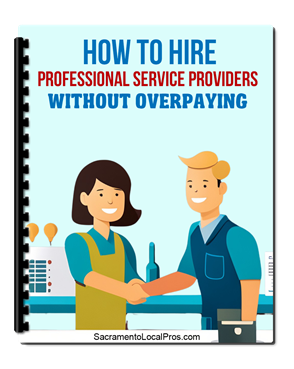Buying a home is one of the most significant financial decisions, and navigating the market during challenging times requires a clear strategy.
With rising mortgage rates and limited inventory, it's crucial to approach the process with confidence and careful planning.
By understanding the key steps and equipping yourself with the right tools, you can still achieve your dream of homeownership.
Read on to uncover actionable steps to set you on the path to success.
1)) Evaluate Your Financial Situation
Understanding your financial situation is the foundation of a successful home-buying experience.
Start by reviewing your income, expenses, and savings to determine how much you can realistically afford.
Please take a close look at your credit score as it plays a significant role in securing favorable mortgage terms.
Aim to reduce any outstanding debts to improve your financial health and borrowing capacity.
Setting a budget that factors in hidden costs like property taxes, maintenance, and homeowner’s insurance is essential.
By assessing your finances thoroughly, you'll be better positioned to make informed decisions and take confident steps toward purchasing your future home.
2)) Improve Your Credit Score
Your credit score significantly impacts the mortgage rates and terms you’ll be offered, so improving it should be a priority.
Start by checking your credit report for any errors or inaccuracies and disputing them if necessary.
Consistently paying bills on time and reducing credit card balances can boost your score over time.
Avoid opening new lines of credit during the home-buying process, as it could negatively affect your score.
If you have limited or no credit history, consider using tools such as secured credit cards to establish responsible credit use.
By actively working to improve your credit score, you increase your chances of accessing better mortgage options and achieving your homeownership goals.
3)) Save For A Down Payment And Closing Costs
A solid savings plan is essential when preparing to buy a home, as you’ll need funds for both the down payment and closing costs.
Start by setting a clear savings goal based on the required down payment, which typically varies depending on the lender, loan type, and home price—ranging from 3% to 20% in most cases.
Remember to account for closing costs, which usually add an extra 2% to 5% of the home’s purchase price.
To reach your goal, consider setting up a dedicated savings account and automating contributions to build your funds consistently over time.
Cutting back on discretionary expenses and seeking additional income sources can also help accelerate your savings.
By preparing adequately for these costs, you’ll be financially ready to make a competitive offer and move forward with confidence in the home-buying process.
4)) Get Pre-Approved For A Mortgage
Getting pre-approved for a mortgage is a critical step to demonstrate your seriousness as a buyer and clarify your purchasing power.
During the pre-approval process, your lender will evaluate factors such as your credit score, income, debt, and employment history to determine the loan amount you qualify for.
This process not only provides you with a clear budget but also signals to sellers that you’re a qualified buyer, giving you an edge in competitive markets.
Be prepared to provide necessary documentation, such as bank statements, tax returns, and pay stubs, to ensure a smooth process.
By obtaining pre-approval, you’ll be better equipped to act quickly when you find the right home and negotiate with confidence knowing your finances are in order.
5)) Research Market Conditions And Trends
Understanding market conditions and trends is vital to making informed decisions during the home-buying process.
Start by researching key factors such as local property values, average days on the market, and inventory levels in your desired area.
Pay attention to economic indicators like interest rate movements and broader real estate trends that may impact the market.
Studying neighborhood-specific details—such as school districts, future development plans, and crime rates—can help you assess the long-term value of a prospective property.
Staying informed about market conditions ensures you’re well-prepared to identify opportunities and challenges, positioning yourself to make smart and timely choices as you search for your ideal home.
6)) Define Your Home-Buying Criteria
Defining your home-buying criteria is essential to narrowing your search and finding a property that aligns with your needs and lifestyle.
Start by identifying your must-haves, such as the number of bedrooms, bathrooms, and specific features like a backyard or a garage.
Consider the location's importance, including proximity to work, schools, public transportation, and amenities such as parks or shopping centers.
Evaluate your long-term goals—whether this home is a starter property or one you plan to stay in for years to come.
By having a clear set of criteria, you can streamline the home-buying process and focus on properties that meet your expectations, increasing the likelihood of finding the perfect home.
7)) Work With A Skilled Real Estate Agent
Working with a skilled real estate agent can make all the difference in navigating the complexities of buying a home.
A knowledgeable agent brings expertise in local market trends, pricing strategies, and negotiation tactics, helping you secure the best deal possible.
They can also save you time by filtering listings that match your criteria and scheduling property tours.
A skilled agent acts as your advocate throughout the transaction, assisting with paperwork, and inspections, and addressing any concerns that arise.
With their professional guidance and support, you’ll feel confident making informed decisions and moving closer to achieving your goal of homeownership.
8)) Explore Available Listings And Neighborhoods
Exploring available listings and neighborhoods is an exciting and critical step in finding your ideal home.
Begin by browsing online real estate platforms to get a sense of the types of homes and prices in your preferred areas.
Take the time to visit neighborhoods in person to evaluate their vibe, amenities, and accessibility to key destinations like work, schools, and shopping centers.
Pay attention to factors such as noise levels, traffic, and community activities, as these can influence your quality of life.
As you tour homes, compare their features to your defined criteria and consider their potential for long-term value or improvement.
By immersing yourself in both the listings and local neighborhoods, you’ll gain the insights needed to make an informed decision and choose a home that suits your lifestyle and needs.
9)) Attend Open Houses And Schedule Showings
Attending open houses and scheduling private showings are fantastic opportunities to gain a deeper understanding of potential properties.
Open houses allow you to explore homes in a casual setting while providing the chance to ask questions and gather insights from the listing agent.
Scheduling private showings offers a more personalized experience, enabling you to take your time examining details and envisioning how the space fits your lifestyle.
Pay attention to key aspects such as the property’s condition, layout, storage options, and any potential maintenance concerns.
These visits also allow you to assess how well a home aligns with your criteria and budget.
By actively participating in open houses and showings, you increase your confidence and clarity, making it easier to identify the perfect home when the opportunity arises.
10)) Make A Competitive Offer
Making a competitive offer is a crucial step in securing the home you’ve set your sights on.
Start by working with your real estate agent to analyze similar property sales in the area, which will help you determine a fair and strategic offer price.
Consider other terms that can make your offer stand out, such as a flexible closing timeline or limited contingencies, while still protecting your interests.
Be prepared to act quickly in a competitive market, as delays can reduce your chances of success.
Understanding the seller’s priorities and crafting an offer that aligns with their needs can help you gain an edge.
A well-calculated and thoughtful approach increases your likelihood of winning the home and taking the next steps toward ownership.
11)) Prepare For Inspections And Appraisals
Preparing for inspections and appraisals is a vital part of the home-buying process to ensure that the property meets your expectations and represents a sound investment.
During the home inspection, hire a licensed inspector who can thoroughly assess the property’s condition, identifying any structural issues, safety concerns, or necessary repairs.
Take the time to attend the inspection if possible, as this allows you to ask questions and gain a better understanding of the property’s condition.
For the appraisal, your lender will arrange for a certified appraiser to evaluate the property’s market value, ensuring it aligns with the agreed purchase price.
Addressing these steps with diligence protects your investment and helps you move forward with confidence in your decision.
12)) Close The Deal And Celebrate Your New Home
Closing the deal on your new home is an exhilarating final step in the home-buying process.
During closing, you’ll review and sign key documents, finalize your mortgage, and complete any other pending requirements to officially transfer ownership.
It’s essential to carefully review all paperwork, ensuring that everything is accurate and aligns with the agreed terms.
Your real estate agent and attorney can provide valuable guidance to address any last-minute questions or concerns.
Once the deal is finalized, celebrate this significant milestone as you prepare to move into your new home.
With the keys in hand, you can begin building memories and creating a space that truly feels like yours.
Conclusion
Purchasing a home is a significant and rewarding journey that requires careful planning, informed decisions, and a proactive approach at every stage.
From exploring neighborhoods and attending open houses to making a competitive offer and finalizing the deal, each step brings you closer to finding a place to call your own.
Trusting in the expertise of professionals and staying committed to your goals ensures a smoother experience and greater confidence in your choices.
By taking the time to evaluate your options and engage fully in the process, you’re not just buying a house—you’re creating a foundation for the future and the start of a new chapter in your life.
Are You Looking For The Best Real Estate Companies In Sacramento Ca? Click Here To Get In Touch With Top Real Estate Agents Today!
Download Our Free E-book!








